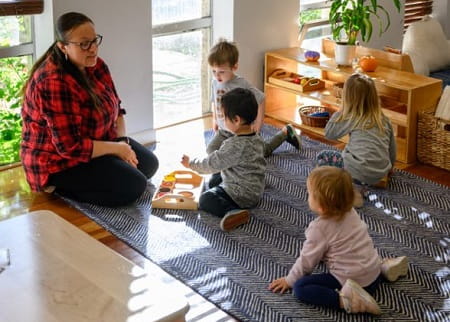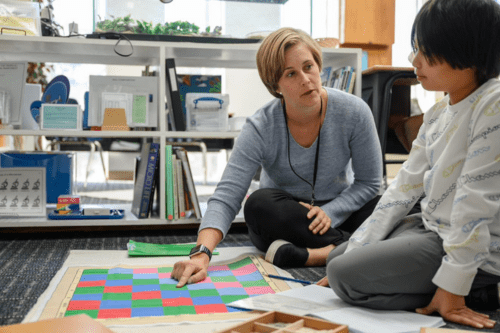Author Marianne Williamson once said, “A change of heart leads to change in behavior, and a change in behavior leads to changing the world.”
As Montessorians, our hope is to change the world through the only path that can truly lead us there, children. Given this task, the question remains of how to undergo this change of heart that can lead to a change in behavior capable of changing the world.
This change of heart takes place when guides are able to observe a child, separate the child from the behavior, and provide them with the support needed to continue encouraging their learning, growth, and development. For some children, additional tools and strategies may be necessary above and beyond that which is typical of a Montessori behavior management system. In these cases, behavior therapy can often provide the support needed to ensure every child experiences success.
What is Behavior Therapy?
Behavior therapy is a series of strategies and interventions that help support children in strengthening positive behaviors and eliminating or reducing unwanted or challenging behaviors.
Applied Behavior Analysis (ABA) is one of the most common behavioral therapies for children that helps them develop skills and reduce problem behaviors. It involves observing what occurs before and after a behavior and altering those triggers or reinforcements in order to change the behavior.
A popular component of behavior therapy is parent (or teacher) training in behavior management. This is where a behavior therapist works with parents, caregivers, or educators to help them learn or improve skills to more positively manage a child’s behavior. According to Children and Adults with Attention-Deficit/Hyperactivity Disorder (CHADD), “Parents [and/or teachers] learn to create structure, reinforce good behavior, discourage negative behaviors, provide consistent discipline, and strengthen the relationship with their child through positive communication.”

Some AMS members have expressed the view that behavior therapy/ABA is not aligned with Montessori philosophy and practice. Please know that AMS continues to collaborate with disabled and neurodivergent people in order to educate its staff and members and to assure that all voices are heard. We aim to publish pieces that keep disability justice in mind and we encourage Montessori educators to talk to Autistic individuals about their experiences with behavior therapy/ABA.
About the Author

The opinions expressed in Montessori Life are those of the authors and do not necessarily represent the position of AMS. On this page |


